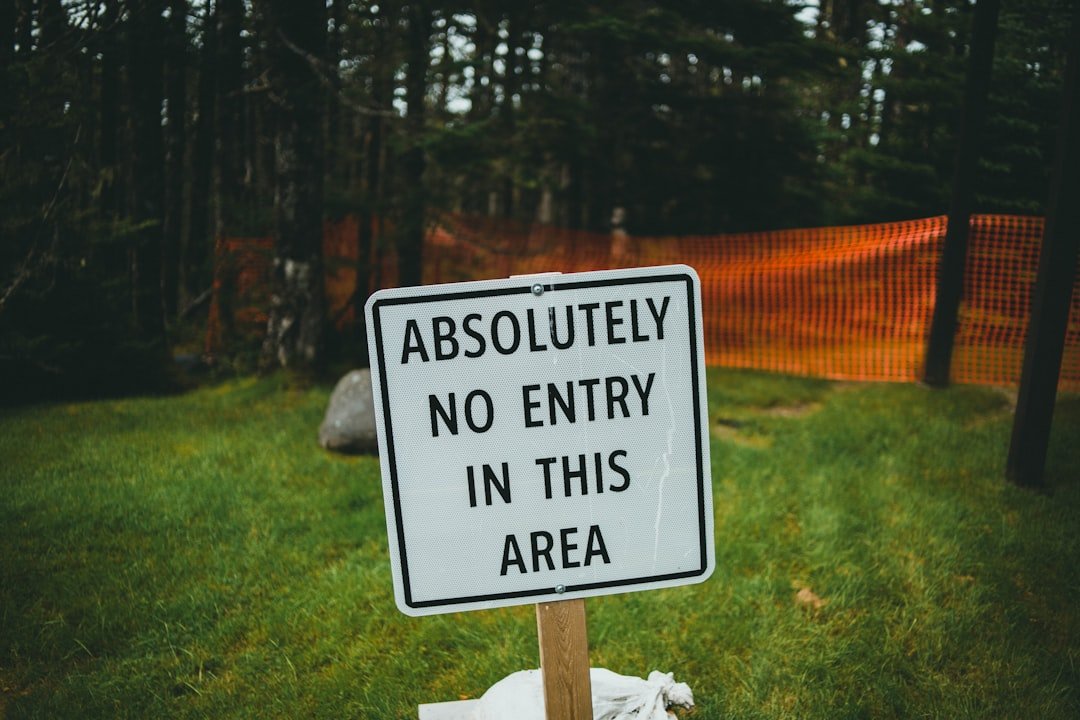Do you ever feel stretched too thin, constantly saying "yes" when you desperately want to say "no"? I’ve been there. For years, I struggled to find balance. My energy felt constantly drained, my time wasn’t my own, and frankly, I often felt taken advantage of. It’s a tough spot to be in, feeling like you’re always playing catch-up or sacrificing your own needs for others.

But then I started to understand something crucial: the power of personal boundaries. Setting boundaries isn't selfish. It's an act of self-care and self-respect. It’s about protecting your energy, your time, and your peace. Think of them as invisible fences you put around yourself, defining what’s okay and what’s not okay in your interactions with others, and even with yourself.
For me, learning to set boundaries was a game-changer. It was a vital step in overcoming unhealthy habits like gaming addiction and binge eating, and it was absolutely essential in my journey to lose over 110 pounds and build a truly productive life. It wasn't easy, but it was worth every ounce of effort.
If you’re ready to reclaim your space and your sanity, here are 15 tips to help you start setting personal boundaries with confidence and kindness.
1. Understand Your "Why"
Before you set any boundary, ask yourself why you need it. What are you protecting? Your energy? Your time? Your peace of mind? When I was battling my gaming addiction, my "why" was reclaiming my life and purpose. Having a clear reason gives you the strength to stand firm.
2. Identify Your Limits
What makes you feel overwhelmed, resentful, or drained? Pay attention to those feelings. They are signals that a boundary might be needed. Recognize your physical, emotional, and mental capacity. We all have different thresholds.
3. Start Small
You don't need to overhaul everything at once. Pick one area where you feel most stretched. Maybe it's saying "no" to an extra task at work, or declining a social invitation you’re not excited about. Small wins build momentum. I started by setting a hard stop time for gaming each night. It felt tiny, but it was a crucial first step.
4. Communicate Clearly and Directly
When you set a boundary, be straightforward. Avoid hinting or beating around the bush. Use "I" statements. For example, "I can't take on that project right now," or "I need to leave by 7 PM tonight."
5. Be Firm and Consistent
This is where the real work happens. People might test your boundaries, especially if they’re used to you being more flexible. Consistency teaches others how to treat you. If you give in once, it makes it harder next time.
6. Don't Over-Explain or Apologize
You don't owe anyone a lengthy explanation for your boundaries. "No, I can't," is a complete sentence. You have a right to your choices. I used to apologize constantly for not wanting to go out or eat something unhealthy. I learned that my health and peace were reasons enough.
7. Learn to Say "No" Gracefully
You can say "no" without being rude. Try phrases like: "That doesn't work for me," "I appreciate you thinking of me, but I'll have to pass," or "My plate is full right now."
8. Set Digital Boundaries
In our always-on world, digital boundaries are vital. Set specific times to check emails or social media. Turn off notifications during deep work or family time. This helps protect your focus and mental space. I use short bursts of deep work (2–4 hours) and this is only possible by strictly limiting digital distractions during those times.
9. Prioritize Your Well-being
Your health, both physical and mental, must come first. When I committed to losing over 110 pounds, prioritizing my physical well-being meant setting clear boundaries around my eating habits. This meant saying "no" to extra servings or tempting snacks, even when others around me were indulging. It was a boundary I had to set for myself, and it was non-negotiable for my health.
10. Protect Your Time
Time is a non-renewable resource. Block out time in your schedule for essential tasks, self-care, and personal pursuits. Treat these appointments with yourself as non-negotiable.
11. Deal with Pushback Calmly
Some people might react negatively to your new boundaries. They might feel inconvenienced or even try to guilt-trip you. Stay calm. Reiterate your boundary simply and firmly. Remember, their reaction isn't your responsibility.
12. Practice Self-Compassion
You won't always get it right. There will be times you falter or feel guilty. That's okay. Learn from it, forgive yourself, and recommit. This journey is a process, not a destination.
13. Seek Support
Talk to trusted friends or family members about your boundary-setting journey. They can offer encouragement, accountability, and a listening ear. Having support makes a huge difference.
14. Remember Your Values
Sometimes, setting boundaries looks like protecting time for what truly nourishes your soul. For me, strengthening my Christian Orthodox faith means carving out moments for prayer and scripture, even when the world pulls me in a thousand directions. It’s a boundary I set to keep my spiritual life a priority, helping me find true purpose and peace.
15. Celebrate Small Wins
Every time you successfully set or maintain a boundary, acknowledge it. Celebrating these small victories reinforces the positive habit and keeps you motivated to continue building a life that truly aligns with your well-being.
Setting personal boundaries takes practice and courage. It can feel uncomfortable at first, but it gets easier. Each time you honor your limits, you build self-trust and self-respect. You create more space for the things that truly matter to you.
What's one small boundary you can set for yourself this week? Choose one area where you often feel drained and commit to protecting your energy there. You deserve to live a life that feels balanced, peaceful, and truly your own.